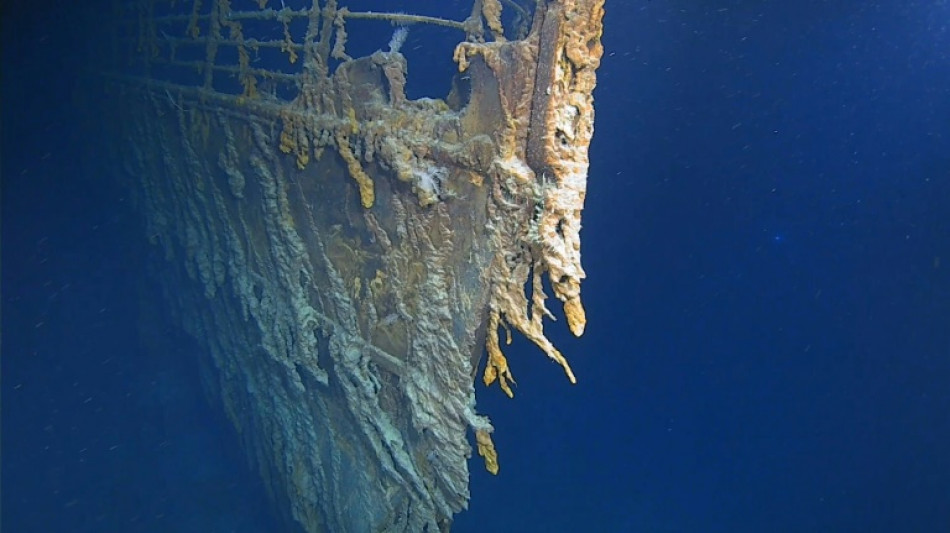
-
 Winter Olympics organisers investigate reports of damaged medals
Winter Olympics organisers investigate reports of damaged medals
-
Venezuela opposition figure freed, then rearrested after calling for elections
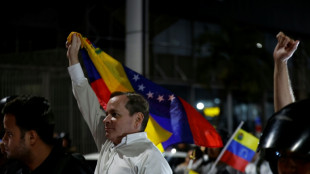
-
 Japan's Murase clinches Olympic big air gold as Gasser is toppled
Japan's Murase clinches Olympic big air gold as Gasser is toppled
-
US athletes using Winter Olympics to express Trump criticism

-
 Japan's Murase clinches Olympic big air gold
Japan's Murase clinches Olympic big air gold
-
Pakistan to play India at T20 World Cup after boycott called off

-
 Emergency measures hobble Cuba as fuel supplies dwindle under US pressure
Emergency measures hobble Cuba as fuel supplies dwindle under US pressure
-
UK king voices 'concern' as police probe ex-prince Andrew over Epstein
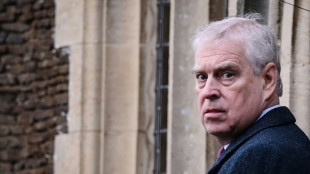
-
 Spanish NGO says govt flouting own Franco memory law
Spanish NGO says govt flouting own Franco memory law
-
What next for Vonn after painful end to Olympic dream?

-
 Main trial begins in landmark US addiction case against Meta, YouTube
Main trial begins in landmark US addiction case against Meta, YouTube
-
South Africa open T20 World Cup campaign with Canada thrashing

-
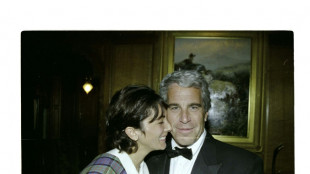 Epstein accomplice Maxwell seeks Trump clemency before testimony
Epstein accomplice Maxwell seeks Trump clemency before testimony
-
Discord adopts facial recognition in child safety crackdown

-
 Some striking NY nurses reach deal with employers
Some striking NY nurses reach deal with employers
-
Emergency measures kick in as Cuban fuel supplies dwindle under US pressure

-
 EU chief backs Made-in-Europe push for 'strategic' sectors
EU chief backs Made-in-Europe push for 'strategic' sectors
-
Machado ally 'kidnapped' after calling for Venezuela elections
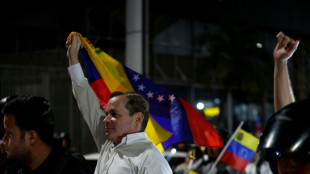
-
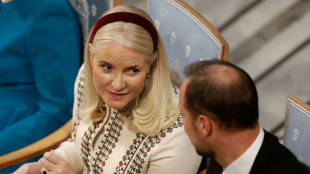 Epstein affair triggers crisis of trust in Norway
Epstein affair triggers crisis of trust in Norway
-
AI chatbots give bad health advice, research finds

-
 Iran steps up arrests while remaining positive on US talks
Iran steps up arrests while remaining positive on US talks
-
Frank issues rallying cry for 'desperate' Tottenham

-
 South Africa pile up 213-4 against Canada in T20 World Cup
South Africa pile up 213-4 against Canada in T20 World Cup
-
Brazil seeks to restore block of Rumble video app
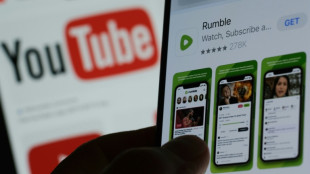
-
 Gu's hopes of Olympic triple gold dashed, Vonn still in hospital
Gu's hopes of Olympic triple gold dashed, Vonn still in hospital
-
Pressure mounts on UK's Starmer as Scottish Labour leader urges him to quit

-
 Macron backs ripping up vines as French wine sales dive
Macron backs ripping up vines as French wine sales dive
-
Olympic freeski star Eileen Gu 'carrying weight of two countries'

-
 Bank of France governor Francois Villeroy de Galhau to step down in June
Bank of France governor Francois Villeroy de Galhau to step down in June
-
Tokyo stocks strike record high after Japanese premier wins vote

-
 'I need to improve', says Haaland after barren spell
'I need to improve', says Haaland after barren spell
-
Italian suspect questioned over Sarajevo 'weekend snipers' killings: reports

-
 Von Allmen at the double as Nef seals Olympic team combined gold
Von Allmen at the double as Nef seals Olympic team combined gold
-
Newlyweds, but rivals, as Olympic duo pursue skeleton dreams

-
 Carrick sees 'a lot more to do' to earn Man Utd job
Carrick sees 'a lot more to do' to earn Man Utd job
-
Olympic star Chloe Kim calls for 'compassion' after Trump attack on US teammate

-
 'All the pressure' on Pakistan as USA out to inflict another T20 shock
'All the pressure' on Pakistan as USA out to inflict another T20 shock
-
Starmer vows to remain as UK PM amid Epstein fallout

-
 Howe would 'step aside' if right for Newcastle
Howe would 'step aside' if right for Newcastle
-
Sakamoto wants 'no regrets' as gold beckons in Olympic finale

-
 What next for Vonn after painful end of Olympic dream?
What next for Vonn after painful end of Olympic dream?
-
Brain training reduces dementia risk by 25%, study finds

-
 Gremaud ends Gu's hopes of Olympic treble in freeski slopestyle
Gremaud ends Gu's hopes of Olympic treble in freeski slopestyle
-
Shiffrin and Johnson paired in Winter Olympics team combined

-
 UK's Starmer scrambles to limit Epstein fallout as aides quit
UK's Starmer scrambles to limit Epstein fallout as aides quit
-
US skater Malinin 'full of confidence' after first Olympic gold

-
 Sydney police pepper spray protesters during rallies against Israeli president's visit
Sydney police pepper spray protesters during rallies against Israeli president's visit
-
Israel says killed four militants exiting Gaza tunnel

-
 Franzoni sets pace in Olympic team combined
Franzoni sets pace in Olympic team combined
-
Captain's injury agony mars 'emotional' Italy debut at T20 World Cup

| RBGPF | 0.12% | 82.5 | $ | |
| SCS | 0.12% | 16.14 | $ | |
| RYCEF | 2.65% | 17.34 | $ | |
| CMSC | 0.06% | 23.585 | $ | |
| JRI | -1.41% | 12.79 | $ | |
| BCC | -1.7% | 89.507 | $ | |
| RELX | 0.24% | 29.45 | $ | |
| RIO | 3.46% | 96.76 | $ | |
| NGG | 0.31% | 88.33 | $ | |
| CMSD | -0.01% | 23.948 | $ | |
| VOD | 2.48% | 15.495 | $ | |
| AZN | -2.76% | 187.84 | $ | |
| GSK | -1.81% | 59.16 | $ | |
| BCE | 1.59% | 25.485 | $ | |
| BTI | -2.56% | 61.235 | $ | |
| BP | 0.73% | 39.295 | $ |

The ship sank. Or did it? Titanic misinformation swirls
The Titanic inspired a tear-jerking blockbuster and expeditions to its watery gravesite -- including a fatal one this week -- but viral TikTok videos peddle a stunning conspiracy theory: the ship never sank.
More than a century after it went down in the North Atlantic Ocean, wild myths and urban legends about the luxury liner have continued to swirl, including that it was doomed by the curse of a mummified Egyptian priestess.
Even more striking are a wave of TikTok videos asserting that the Titanic did not sink at all. Many of them have racked up millions of views -- never mind that the claim fails to hold water.
"The Titanic never truly went under," said a video by a TikTok user called "The Deep Dive," which garnered more than four million views.
"Everyone is familiar with the tale of the unstoppable ship that perished after colliding with an iceberg, but perhaps that isn't the case."
The video opens with a dramatic portrait of the Titanic, its stern crashing against stormy waves, as an imperious male voice goes on to claim that it was swapped with its sister ship –- the Olympic.
He alluded to an oft-repeated conspiracy theory that the company that built the Titanic purposely sank the Olympic, another one of its ships, as part of an elaborate insurance fraud.
A similar TikTok video claiming "the Titanic never sank" garnered 11 million views. The video was removed earlier this year in what appeared to be a rare intervention after it was widely reported by the US media.
- Historical falsehoods -
TikTok's algorithm and engagement-based recommendation system, which creates personal feeds for users based on their preferences, makes it a powerful platform to propagate conspiracy theories, experts say.
"This makes it easier for this type of content to spread," Megan Brown, a senior research scientist at New York University's Center for Social Media and Politics, told AFP.
"The other factor that makes it easier for historical conspiracy theories to spread over other types of conspiracy theories or misinformation is that it's typically not moderated content."
While the platform says it removes posts that cross its threshold of "significant harm" –- such as violence or harassment –- other seemingly benign content laced with falsehoods remains untouched.
That approach, researchers say, underscores a key dilemma facing social media platforms: How to tackle an explosion of misinformation without giving users the impression that they are restricting free speech?
That gap in policy has given rise to a breed of users who flourish on the back of disproven conspiracy theories that generate strong engagement, such as the Earth is flat and the 1969 Moon landing was a hoax.
- 'Sad part' -
That also includes TikTok's Titanic influencers -- focused on the vessel that sank in 1912 during its maiden voyage from England to New York after hitting an iceberg.
The proliferation of Titanic conspiracy theories on the popular platform may appear benign compared to other falsehoods that result in real-world harm, but historians say it remains vital to debunk them.
They worry conspiracy theories will affect how a generation of young people –- who often rely on platforms such as TikTok as a primary source of information -- learn about the tragedy.
"The sad part is that many of the people following this sort of thing are teenagers," said Charles A. Haas, founder of the Titanic International Society, which is dedicated to research about the ill-fated ship.
"They are woefully unwilling to do digging," Haas told the New York Times.
TikTok influencers and celebrities are increasingly taking over from journalists as the main source of news for young people, according to a report published this month by the Britain-based Reuters Institute.
The report found that 55 percent of TikTok and Snapchat users and 52 percent of Instagram users get their news from "personalities" -- compared to 33-42 percent who get it from mainstream media and journalists on those platforms.
That was reflected in how millions of young users turned to TikTok this week for updates on the five people aboard a tourist submersible that vanished in the North Atlantic Ocean on their way to visit Titanic's seabed wreckage, on a $250,000 ticket.
All five died after the craft suffered what the US Coast Guard said was a "catastrophic implosion" in the ocean depths.
"What if this all is a cover up?" asked a young TikTok user, referring to wall-to-wall news coverage about the submersible.
"Is there something behind the scenes that we're not seeing?" he added, peddling another unfounded conspiracy in a video that racked up over 4.2 million views.
J.Williams--AMWN


